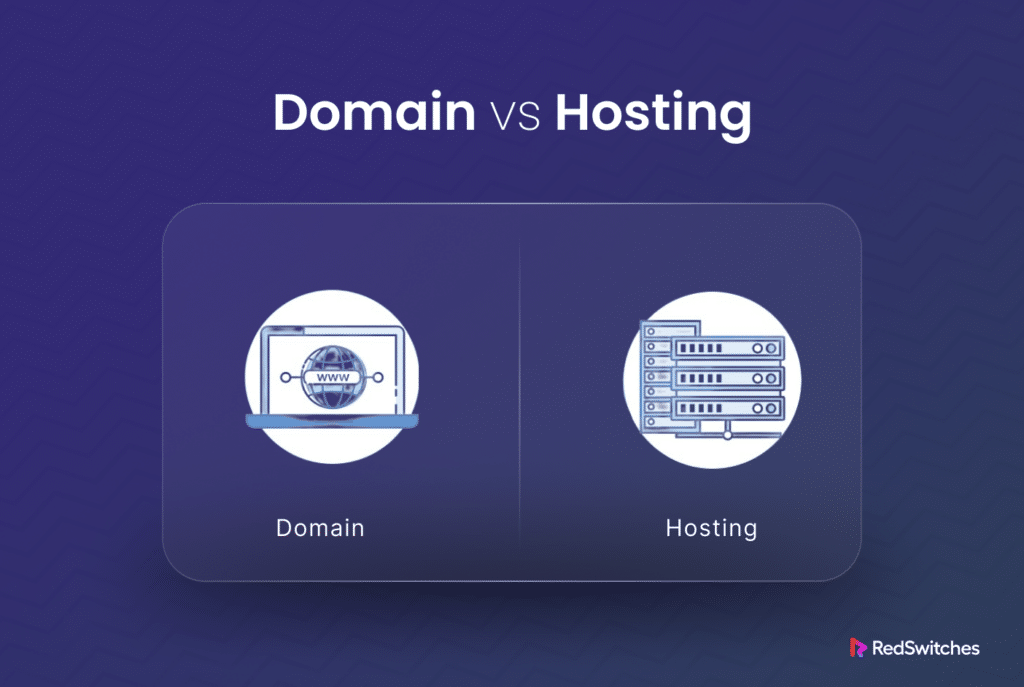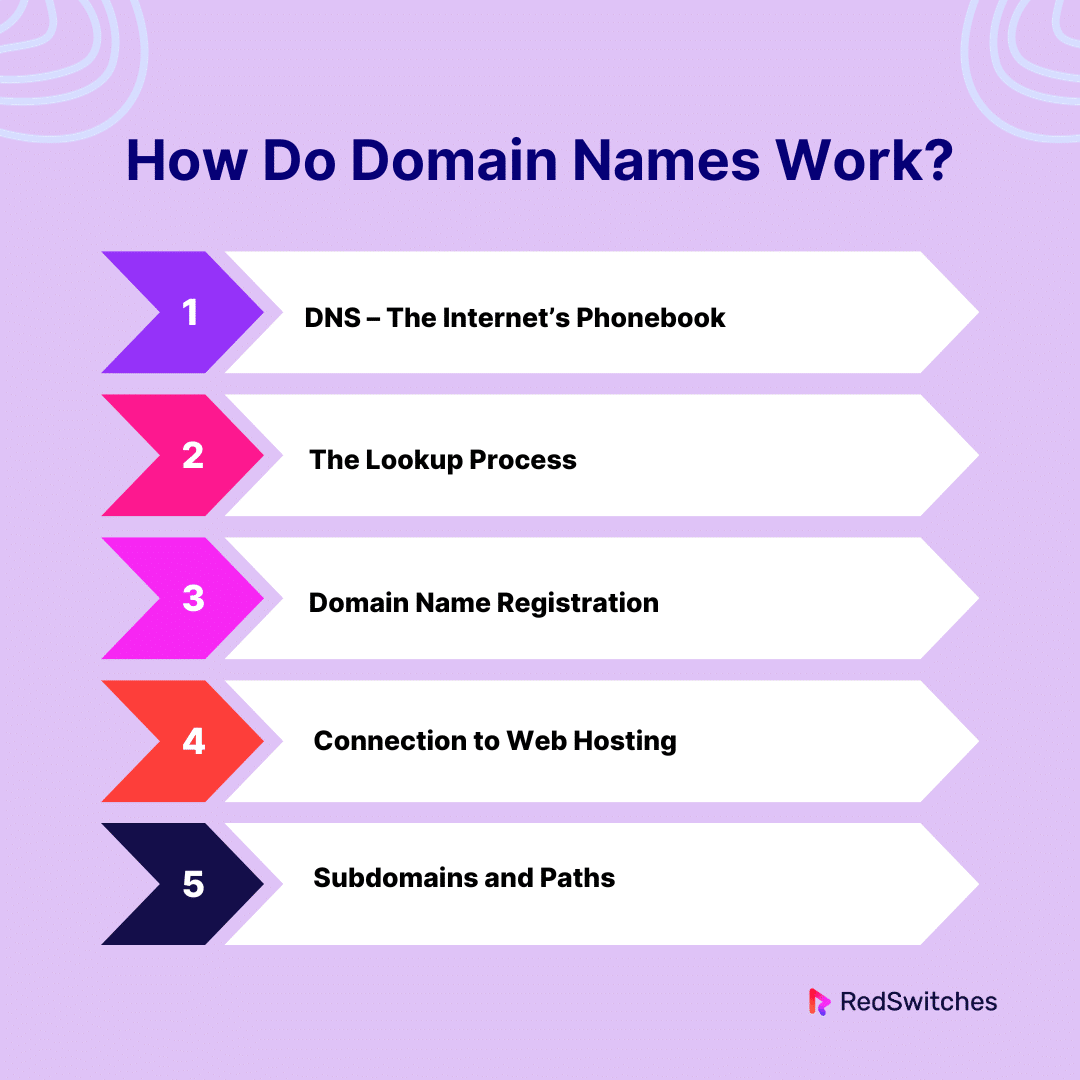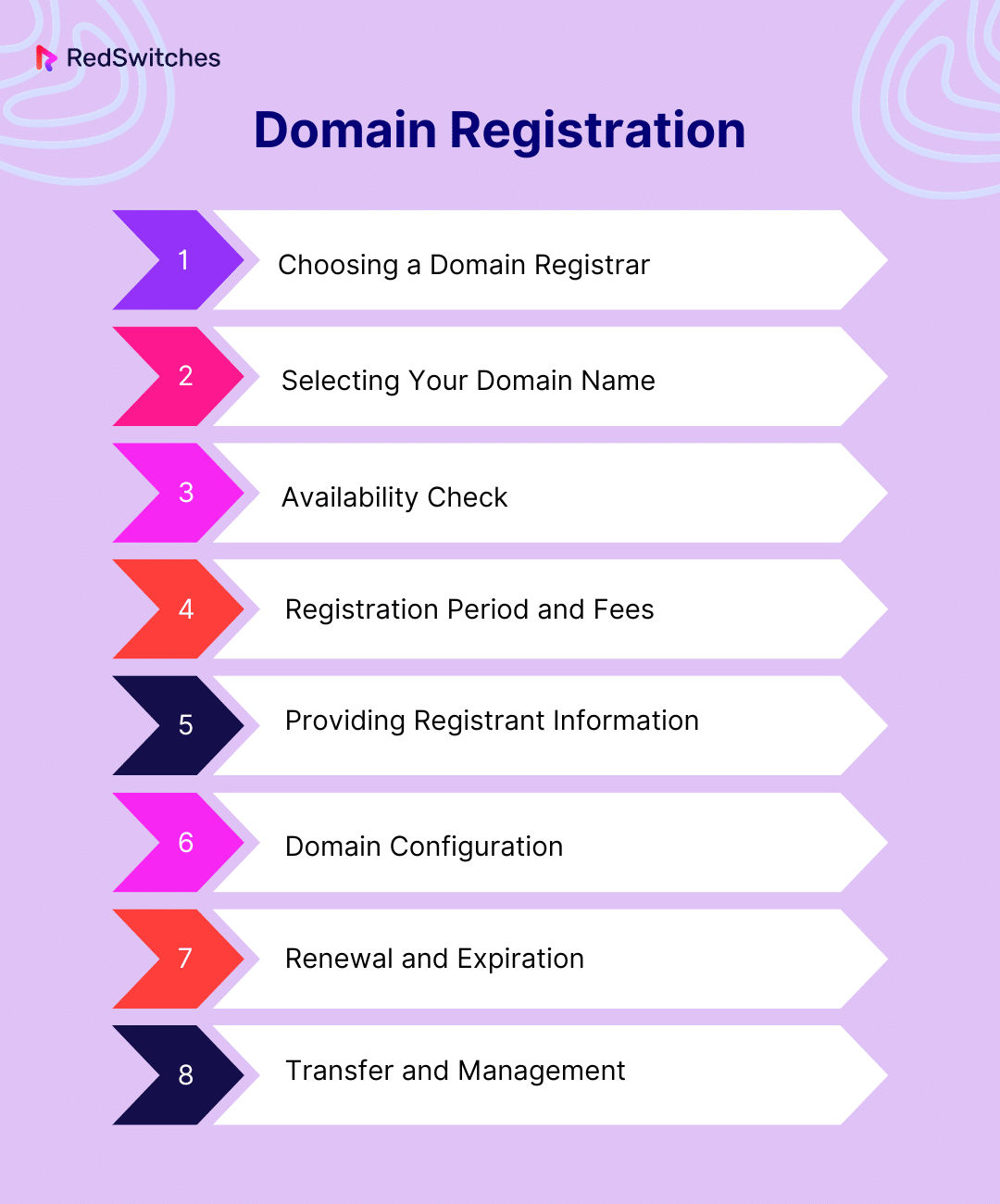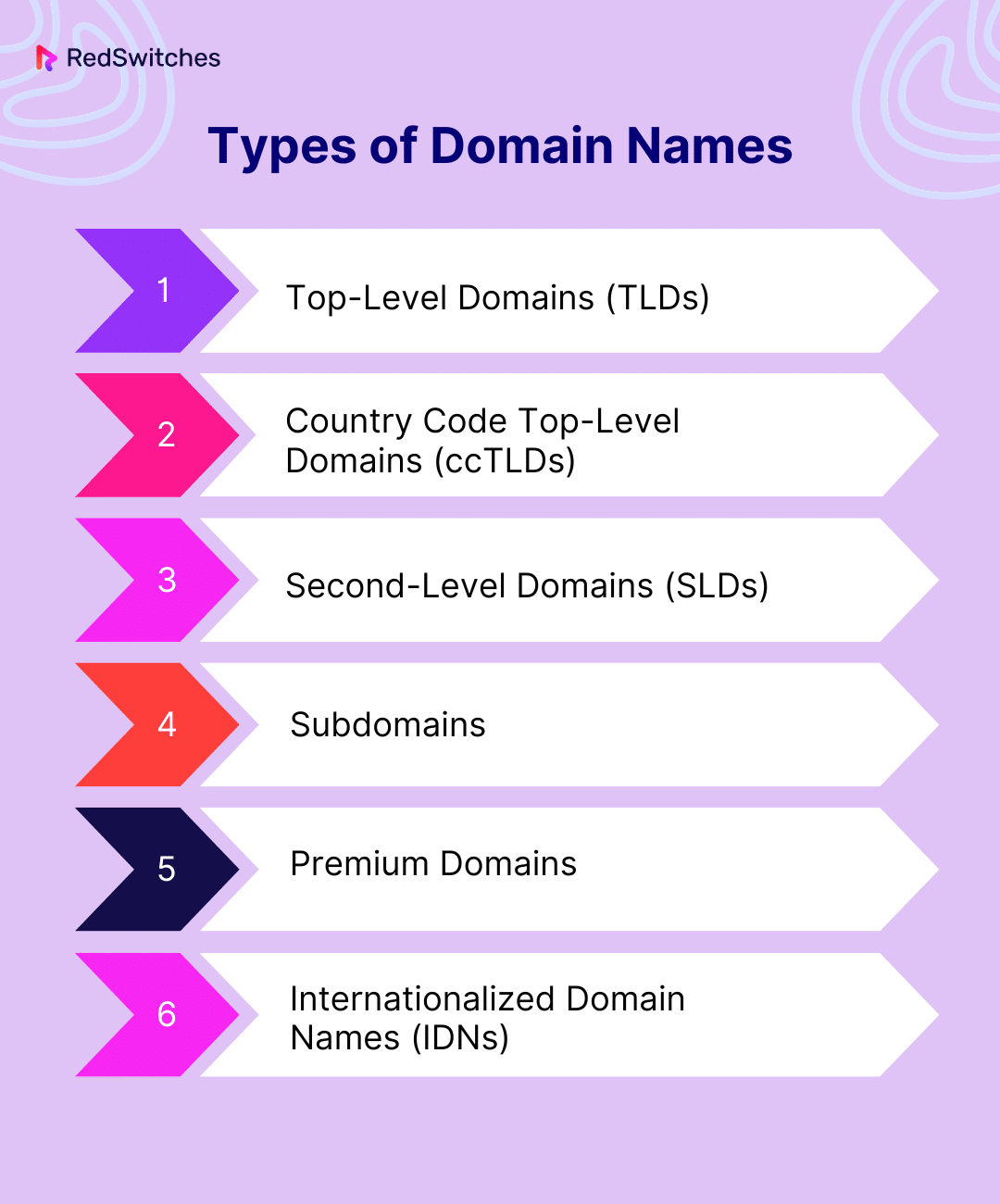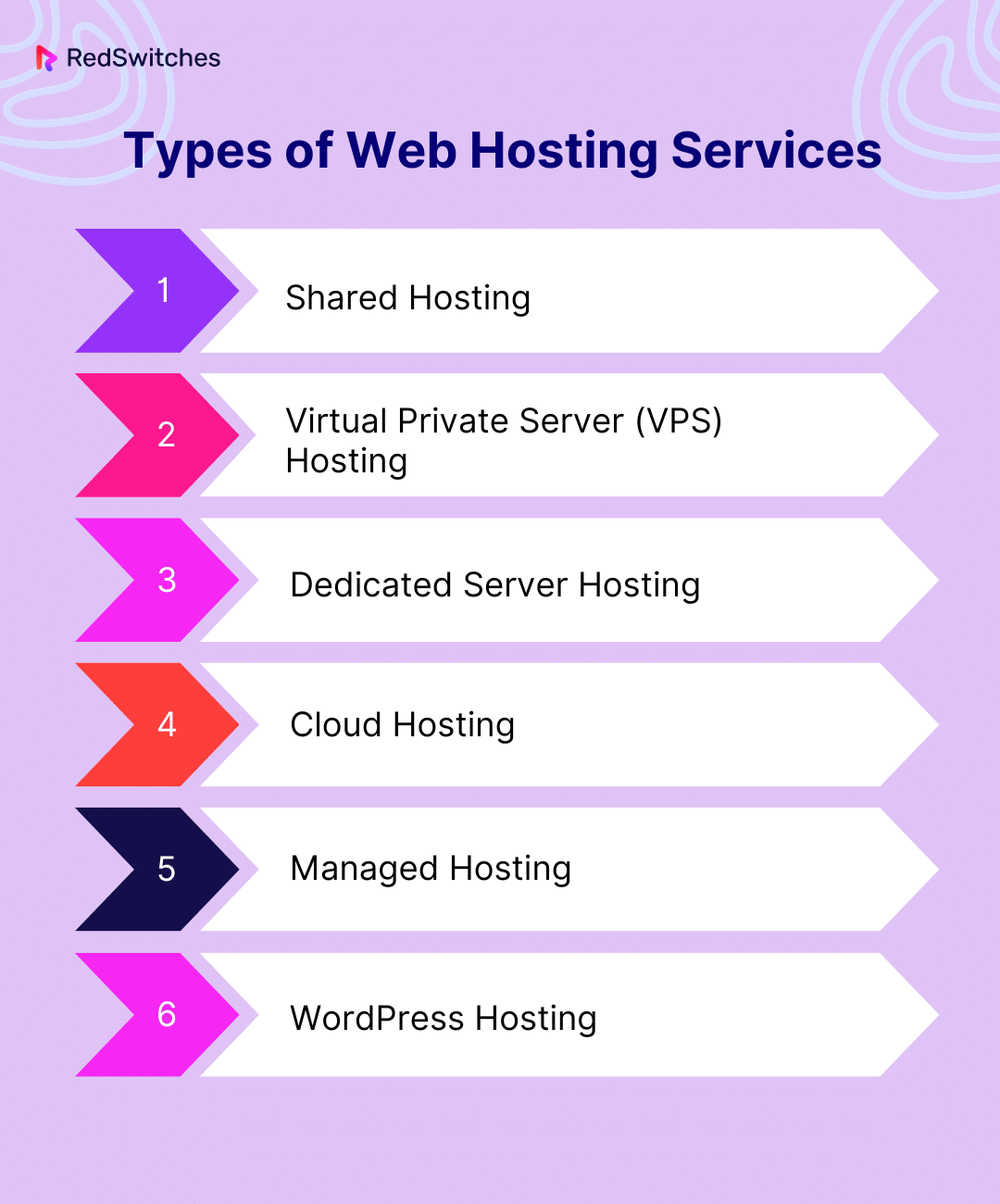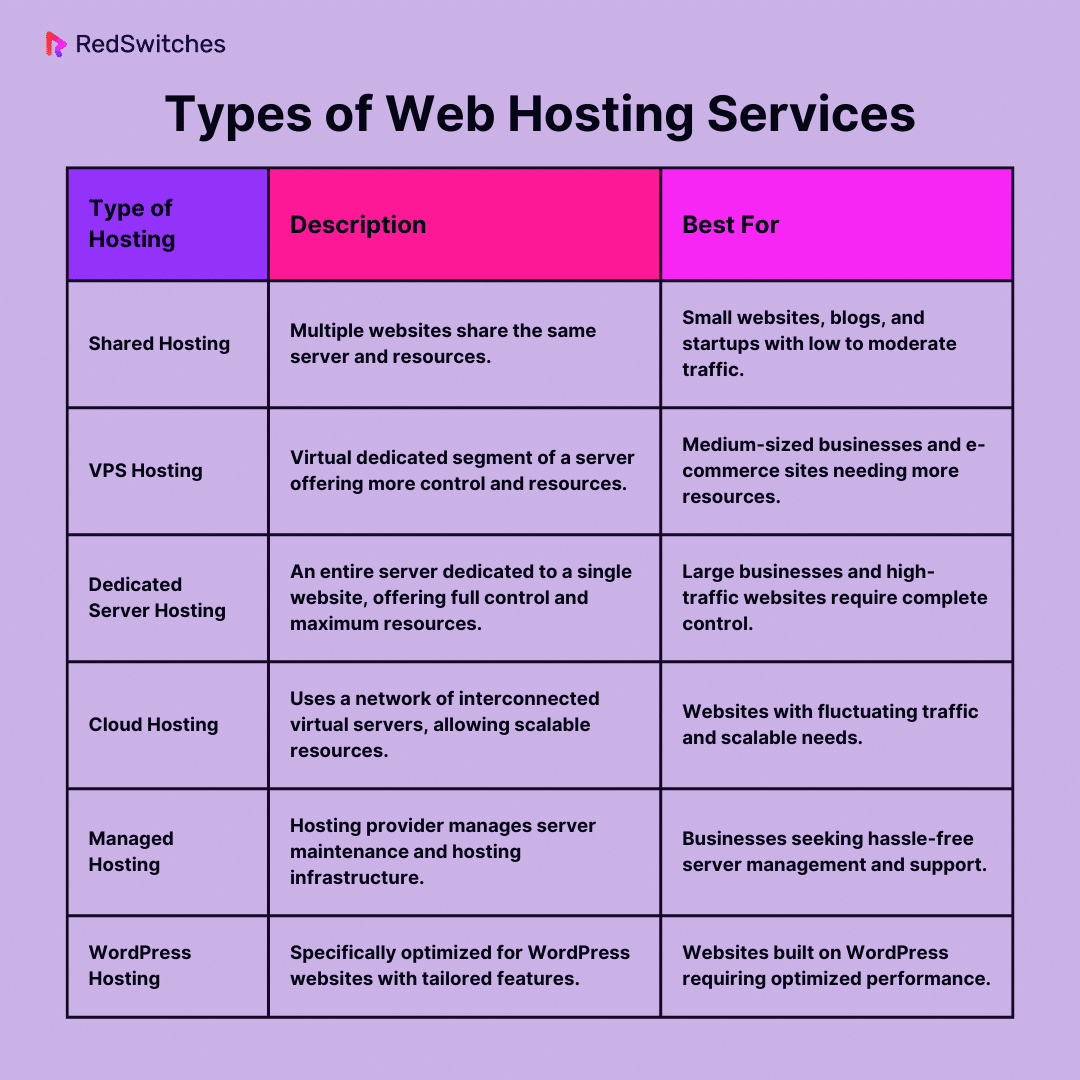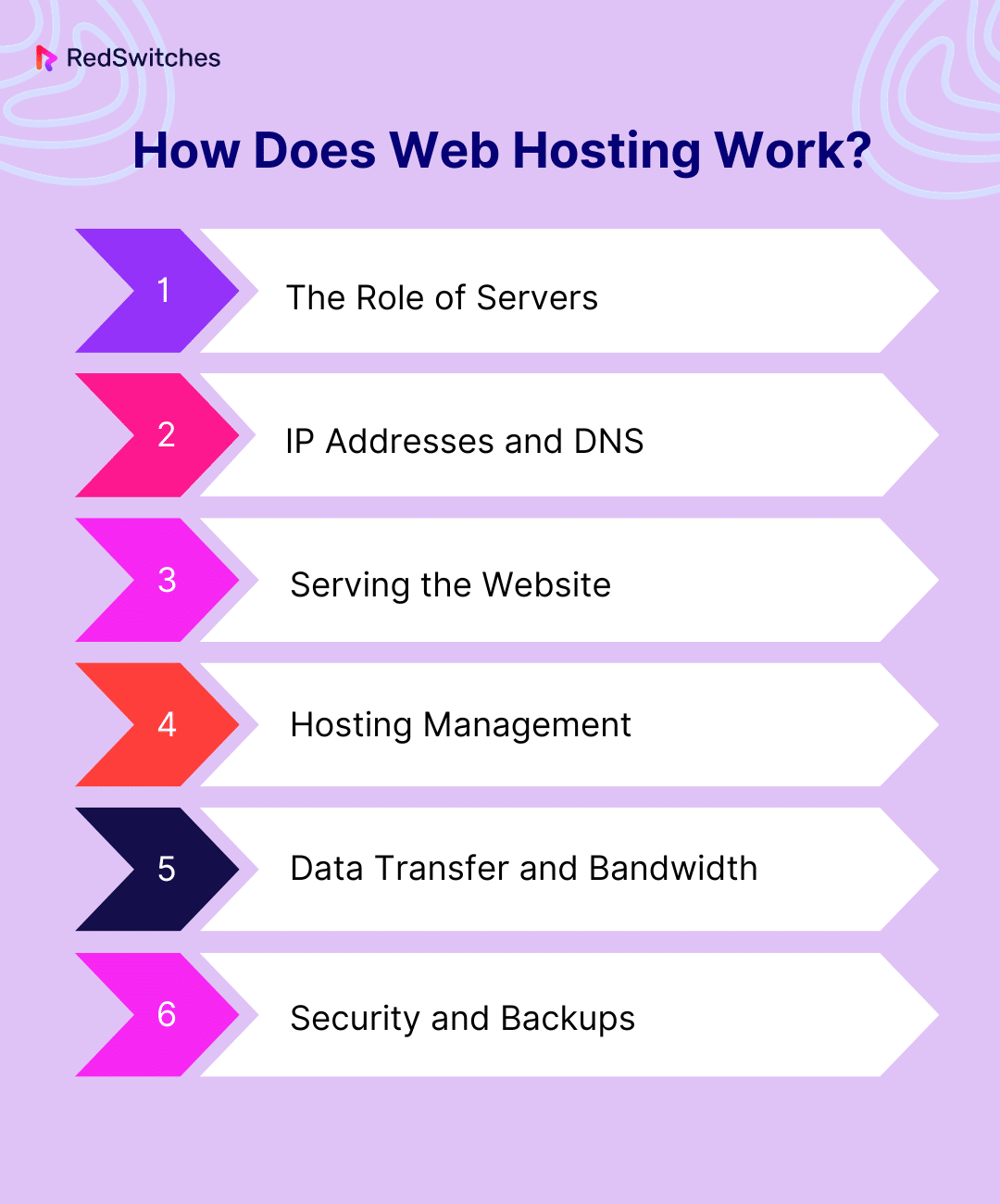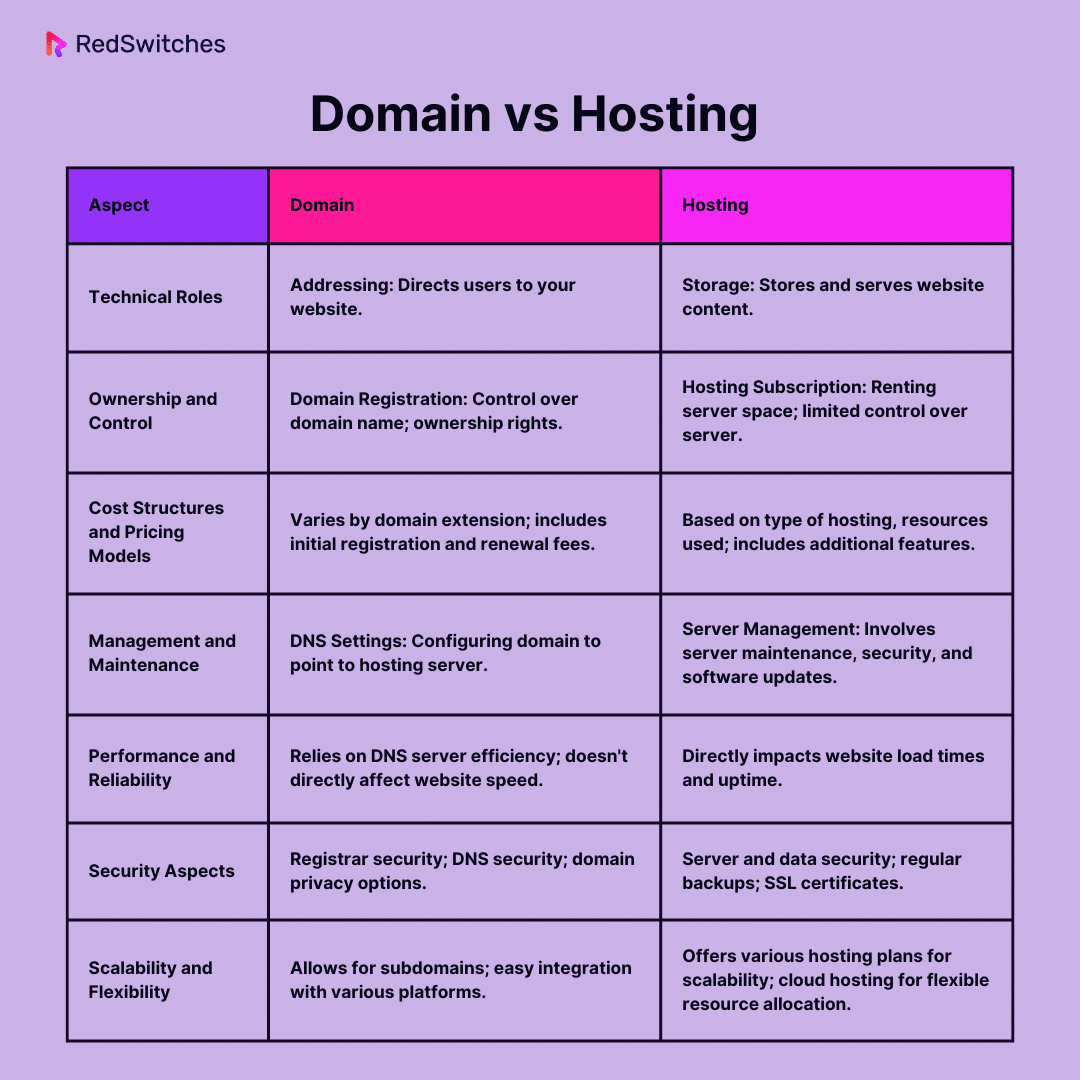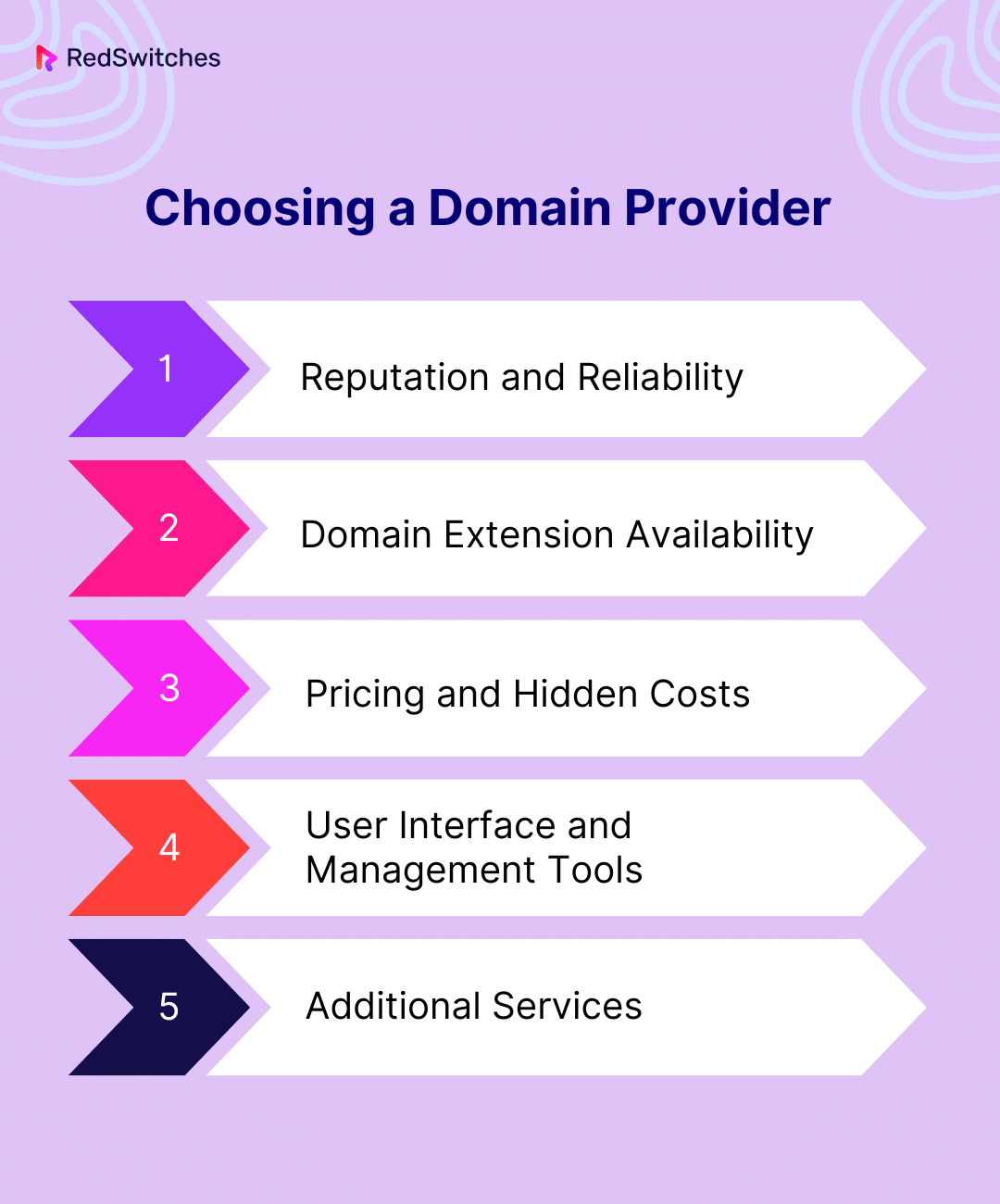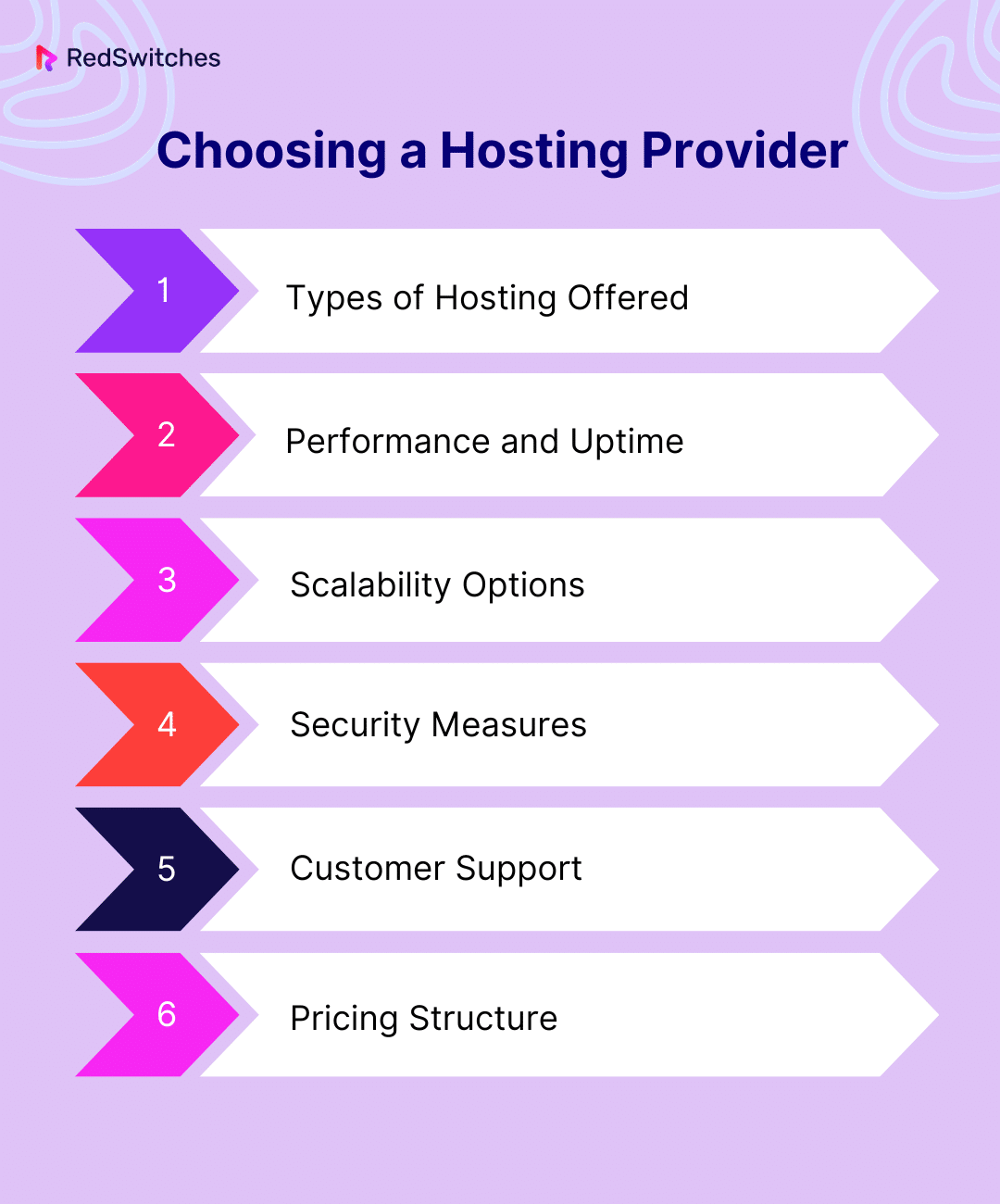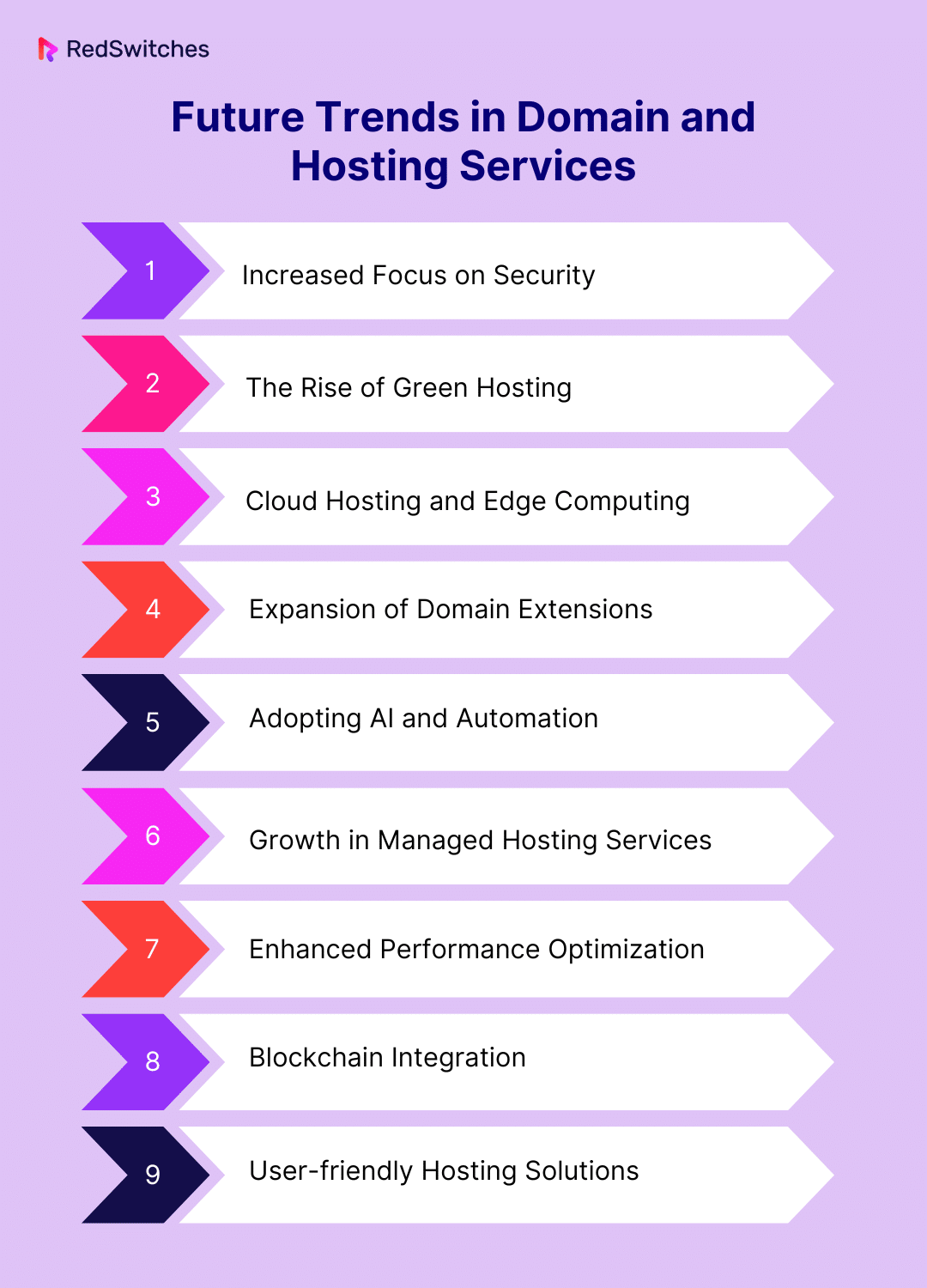Key Takeaways
- Domains serve as easy-to-remember addresses for websites, similar to physical addresses.
- Hosting provides the necessary technology for websites to be viewed on the internet.
- Shared, VPS, dedicated, and cloud hosting offer solutions for different website needs.
- Acquiring a unique domain name is crucial for establishing an online presence.
- Choosing the right hosting service is key to a website’s speed and availability.
- The Domain Name System (DNS) connects domain names with the hosting server’s IP address.
- Implementing strong security measures is essential for protecting websites and their visitors.
- The ability to scale resources is vital for a website’s growth and the addition of new sections.
- Domain registration and hosting have different costs related to their specific services.
- Future trends in hosting and domains include a focus on environmental sustainability, the application of AI, and improved security.
Did you know that as of June 2023, over 1.11 billion websites had been floating in the vast sea of the internet? Amidst this ocean of digital opportunities, it’s crucial to lay the proper foundation for your online journey, and understanding the concepts of domain vs hosting becomes essential. With a vast number of websites continuously joining the internet—about 28,800 new websites are made daily—differentiating and effectively managing domains and hosting can’t be overstated.
Navigating the intricacies of domains and hosting can be similar to setting sail in uncharted waters. Lots of people get lost in confusing technical jargon and marketing buzz, making it hard to figure out the best way forward. Yet, understanding these concepts is not just about getting your website live; it’s about crafting a digital identity that resonates with your audience and serves your goals.
In this blog, we’ll embark on a journey to explore the nuances of domains and hosting. We’ll break down the technicalities into easy-to-understand elements, ensuring you’re well-equipped to make informed decisions. So, set your sails, and let’s dive into the world of domains and hosting, unraveling their mysteries one step at a time.
Table of Contents
- Key Takeaways
- What Is A Domain Name?
- What Is Web Hosting?
- Domain vs Hosting: 7 Key Differences and Why They Matter
- Technical Roles: Addressing vs Storage
- Ownership and Control: Domain Registration vs Hosting Subscription
- Cost Structures and Pricing Models
- Management and Maintenance: DNS Settings vs Server Management
- Performance and Reliability: Impact on Website Functionality
- Security Aspects: Protecting Your Domain and Hosting Environment
- Scalability and Flexibility: Adapting to Growth
- How Do Domain and Hosting Work Together to Create a Website?
- Choosing the Right Domain and Hosting Provider
- Future Trends in Domain and Hosting Services
- Conclusion
- FAQs
What Is A Domain Name?
Credits: Freepik
Understanding the concept of a domain name is like learning the address system of the digital world. Just as you need a physical address to find a particular house or business, you need a domain name to find a specific website online. The unique identifier lets people quickly navigate the web and find your location.
A domain name comprises two main elements: your name and a domain extension (like .com, .org, .net, etc.). For instance, in ‘example.com’, ‘example’ is the name you choose for your website, and ‘.com’ is the domain extension. This combination ensures that each domain name is unique, preventing confusion and overlap in the vast expanse of the internet.
In the context of domain vs hosting, think of the domain name as the address of your house, while the hosting (which we’ll discuss later) is like the actual physical house where your website’s content lives. Without a domain name, users must type in a complex series of numbers known as an IP address to access your website. Domain names bring much-needed simplicity and accessibility to the internet.
Also Read: Host vs Server: What These Are & How They Differ
How Do Domain Names Work?
To understand how domain names work, let’s delve deeper into the digital mechanisms that make navigating the internet a smooth experience. At its core, the process is akin to a well-organized directory service, guiding users to the correct destination with minimal effort.
DNS – The Internet’s Phonebook: The Domain Name System (DNS) is the Internet’s equivalent of a phonebook. It translates user-friendly domain names (like “example.com”) into IP addresses (like 192.0.2.1) that computers use to identify each other on the network. When you type a domain name into your browser, the DNS servers act as guides, directing your request to the correct server on the internet.
- The Lookup Process: Here’s a simplified breakdown of what happens when you enter a domain name into your web browser:
- Your browser first checks if it has the corresponding IP address in its cache. If not, it requests a DNS server.
- The DNS server looks through its records. If it finds the domain name, it returns the associated IP address.
- Your browser then uses this IP address to connect with the web server hosting the website, allowing you to access the site.
Domain Name Registration: When you register a domain name, you reserve that unique address online for a certain period. You do this through a domain registrar, an organization accredited to sell domain names. During this process, you choose a domain name and an extension (.com, .net, etc.) that best suits your needs.
Connection to Web Hosting: While the domain name is your address, it needs a physical space to host your website’s content – this is where web hosting comes in (a concept we’ll explore later). The domain name is linked to the server where your website is hosted, and this link is maintained in the DNS.
Subdomains and Paths: Domain names can also have subdomains and paths that allow for further organization and navigation of a website. For example, in “blog.example.com,” “blog” is a subdomain of “example.com,” often used to categorize different sections or services of the same website.
In summary, domain names work as a crucial part of the internet’s addressing scheme, allowing users to easily find and access websites without having to remember complex numerical IP addresses. They are functional and a significant part of your online identity in the broader domain vs hosting discussion. Understanding this interplay is essential for anyone looking to establish a meaningful presence on the web.
What Is Domain Registration?
Domain registration is a fundamental step in establishing an online presence, serving as the process of acquiring a unique domain name representing your website online. It’s an essential concept in the domain vs hosting discussion, laying the groundwork for your digital identity.
Here’s what you need to know about domain registration:
- Choosing a Domain Registrar: To register a domain name, you must go through a domain registrar. These are organizations accredited by the Internet Corporation for Assigned Names and Numbers (ICANN) or a national ccTLD authority to sell domain names. They act as intermediaries between you and the global domain name registry.
- Selecting Your Domain Name involves choosing a unique name and an extension (.com, .org, .net, etc.). It’s crucial to pick a name that represents your brand or purpose and is easy to remember, spell, and type. The domain name should resonate with your audience and align with your online objectives.
- Availability Check: Since each domain name must be unique, the registrar will check the availability of your chosen name. You may have to consider alternative names or extensions if it’s already taken.
- Registration Period and Fees: Domain names are typically registered for one to ten years and require renewal. Registrars charge a fee for this service, which can vary based on the domain extension and the length of the registration period.
- Providing Registrant Information: When registering a domain, you must provide registrant information, including your name, address, email, and phone number. This information is usually made public through the WHOIS directory, although many registrars offer privacy protection services to keep your personal information hidden.
- Domain Configuration: You can configure your domain settings after registration. This includes setting up DNS records to point your domain to the server where your website is hosted, configuring email addresses, and setting up any subdomains.
- Renewal and Expiration: Keep track of your domain’s expiration date. Failing to renew a domain on time can lead to its deactivation or loss. Some registrars offer auto-renewal services to prevent accidental expiration.
- Transfer and Management: You can transfer your domain name between registrars or change the ownership details if needed. Managing your domain involves keeping your registrant information up-to-date and ensuring your domain settings align with your hosting arrangements.
Domain registration is your first official step in carving out your space on the internet. It’s more than just a technical necessity; it’s a declaration of your digital identity. Understanding the ins and outs of domain registration is crucial in the broader context of domain vs hosting, ensuring that you lay a solid foundation for your online endeavors.
Also, Read Free Hosting vs Paid Hosting: Advantages and Disadvantages
Types of Domain Names
As we navigate the complexities of domain vs hosting, understanding the different types of domain names is crucial. These varieties cater to different needs and purposes, allowing for diverse online identities. Here’s a closer look at the main types of domain names:
Top-Level Domains (TLDs): These are the highest domain names in the DNS structure. TLDs are the part of the domain name located to the right of the dot, such as .com, .org, and .net. There are several categories within TLDs:
-
- Generic TLDs (gTLDs): These are general-purpose domains that anyone can use (e.g., .com, .org, .info).
- Sponsored TLDs (sTLDs): These are overseen by private organizations and are intended for specific groups (e.g., .edu for educational institutions, .gov for government entities).Country Code Top-Level Domains (ccTLDs): These are specific to individual countries and are two letters long, such as .uk for the United Kingdom and .jp for Japan. They are often used by websites that target audiences in a specific country.
Second-Level Domains (SLDs): These are the names directly to the left of the TLDs in a domain name. For example, on example.com, an example is the SLD. This is typically the part of the domain name that is registered and personalized.
Subdomains: These are additional parts of the main domain that can be created to organize and navigate to different sections of your website. For example, blog.example.com might be a subdomain of example.com, dedicated to the site’s blog section.
Premium Domains: These high-value domains are often short, memorable, and sometimes contain common words or phrases. They are typically more expensive due to their perceived higher value in terms of branding and marketing potential.
Internationalized Domain Names (IDNs): These domain names include characters from non-Latin alphabets, such as Arabic, Chinese, Cyrillic, etc. They allow users to register domain names in their native language.
In the broader domain vs hosting context, your choice of domain type plays a significant role in defining your online identity and reach. While TLDs like .com are universally recognized, opting for a ccTLD might be more beneficial if your audience is country-specific. Similarly, subdomains can significantly enhance your website’s organization and user experience. Understanding these types and their appropriate applications is key to effectively establishing and managing your online presence.
What Is Web Hosting?
Credits: Freepik
In our exploration of domain vs hosting, we’ve discussed the role of domain names as the address of your online presence. Now, let’s turn our attention to web hosting, the foundation upon which your website is built and made accessible to the world.
Web hosting is a service that allows individuals and organizations to post a website or web page onto the Internet. A web host, or web hosting service provider, is a business that provides the technologies and services needed for the website or webpage to be viewed on the Internet. Websites are hosted or stored on special computers called servers.
When Internet users want to view your website, they must type your website address or domain into their browser. Their computer will then connect to your server, and your web pages will be delivered to them through the browser.
Types of Web Hosting Services
In the sphere of domain vs hosting, understanding the different types of web hosting services is crucial for making an informed decision that aligns with your website’s needs. Each type offers distinct features, performance levels, and cost structures, catering to various website requirements and traffic volumes. Here’s an overview of the primary types of web hosting services:
Shared Hosting
In shared hosting, multiple websites are hosted on a single server, sharing the server’s resources such as memory, computing power, and storage space.
Best For: Ideal for small websites, blogs, and startups with low to moderate traffic levels.
Virtual Private Server (VPS) Hosting
VPS hosting divides a single server into multiple virtual servers, where each website is allocated a dedicated portion of the server’s resources.
Best For: Suitable for medium-sized businesses, e-commerce sites, and websites with moderate traffic that require more control and resources than shared hosting.
Dedicated Server Hosting
Dedicated hosting provides an entire server for a single website, offering complete control over the server and its resources.
Best For: Large businesses, high-traffic websites, and websites with specific requirements for security, control, and performance.
Cloud Hosting
Cloud hosting uses a network of interconnected virtual servers to host websites, allowing resources to be scaled as needed.
Best For Websites with fluctuating traffic, growth-oriented businesses, and those seeking reliability and scalability.
Managed Hosting
Managed hosting involves a hosting provider taking care of the day-to-day management of the servers and hosting infrastructure.
Best For: Businesses without a dedicated IT team, those who prefer to focus on their core business rather than on technical hosting details.
WordPress Hosting
Specifically optimized for WordPress websites, this hosting offers features and resources tailored to the WordPress platform.
Best For Websites is built on WordPress and is looking for optimized performance, security, and support.
Each type of hosting service offers unique benefits and limitations, making it essential to assess your website’s needs, technical expertise, and budget when choosing a hosting solution.
In the broader discussion of domain vs hosting selecting the exemplary hosting service is as crucial as choosing the appropriate domain name, as both play pivotal roles in the success and performance of your website.
Also Read: Choosing the Right Web Hosting for Developers
Here’s a concise comparison summary table for the different types of web hosting services:
How Does Web Hosting Work?
Understanding how web hosting works is essential in the domain vs hosting context, as it explains the mechanics behind making your website accessible to users worldwide. Web hosting involves a blend of physical hardware, internet connectivity, and software configurations that collectively bring your website to life. Here’s a breakdown of how it works:
- The Role of Servers: At the heart of web hosting are powerful computers that store your website’s files and data. These servers are maintained in data centers by the hosting provider. When someone types your domain name into their web browser, the browser sends a request to the server hosting your website.
- IP Addresses and DNS: Each server has a unique IP address. The Domain Name System (DNS) translates your domain name into its corresponding IP address, directing the user’s browser to the correct server. This process is like looking up a phone number in a phone book.
- Serving the Website: Once the browser reaches the correct server, the server retrieves the requested web page data, such as HTML files, images, and stylesheets, and sends them back to the browser. The browser then assembles this data and displays it as a web page to the user.
- Hosting Management: Hosting providers also offer management services. This can include server maintenance, software updates, security protocols, and technical support. Depending on the level of management offered (fully managed, semi-managed, or unmanaged), the website owner’s responsibility for maintenance varies.
- Data Transfer and Bandwidth: Data is transferred from the server to their device when users visit your site. Hosting plans come with bandwidth limits, determining how much data can be transferred at a time. Higher bandwidth is necessary for websites with high traffic or large files.
- Security and Backups: Web hosts implement security measures to protect your site from cyber threats. They also often provide regular backups, ensuring that your data can be restored in case of data loss.
In essence, web hosting is renting or buying space to house a website on the World Wide Web. It’s the physical location where your website’s content is maintained. Understanding how web hosting works, in conjunction with domain names, is critical to successfully managing and maintaining an online presence.
Also Read Dedicated IP vs Shared IP: Differences, Benefits & Their Impact
Domain vs Hosting: 7 Key Differences and Why They Matter
Credits: Freepik
Imagine this: if your website were a house, the domain would be its address, and hosting would be the actual plot of land where the house sits. While they work in tandem to ensure your website is accessible and functional, they serve distinct purposes.
One provides a memorable way to reach your site, and the other offers a physical space for your website. Here, we’ll dissect the differences between domain and hosting, exploring why each is crucial and how they interplay in the grand scheme of your online identity.
Dive in to demystify these two pillars of the web world and learn why every aspiring digital navigator should grasp their significance.
Technical Roles: Addressing vs Storage
Credits: Freepik
When navigating the domain vs hosting landscape, it’s crucial to understand the distinct technical roles each plays in the realm of web presence. Domains and hosting serve different but complementary functions, essential for any website to operate effectively.
Addressing: The Role of a Domain
A domain name functions as the address of your website. It translates the intricate numerical IP addresses into a user-friendly format, making it easier for visitors to find your website. Just like a physical address helps people locate a particular house, a domain name directs them to your website. This addressing role is more than mere functionality; it’s also about branding. The right domain name can significantly impact your online identity, making your site memorable and recognizable.
Storage: The Role of Hosting
Web hosting, in contrast, is about providing the physical space or ‘storage’ for your website on the internet. It’s where all the files, data, and content that make up your website are stored. This service is akin to the plot of land or the structure of a building where your website ‘resides.’ The type, quality, and capacity of web hosting directly affect your website’s performance, speed, and reliability, impacting user experience and functionality. Without hosting, a domain name would lead to a non-functional space akin to an address pointing to an empty lot.
Ownership and Control: Domain Registration vs Hosting Subscription
Credits: Freepik
In the context of website hosting vs domain, the aspects of ownership and control are distinct, each with significance and implications for website owners.
Domain Registration: Ownership and Control
Registering a domain is akin to acquiring a lease for a unique piece of digital real estate. This domain name becomes your property on the internet, a unique identifier you control for as long as you maintain its registration. This process grants you exclusive rights to that particular address (domain name), allowing you to use it for your website, email, or other online services. Controlling a domain name lies primarily in its ability to be redirected, sold, or leased, providing flexibility and ownership crucial for branding and business identity.
Hosting Subscription: Control and Flexibility
Web hosting, on the other hand, is more like renting space in a building. You pay for using server space to store your website’s content and ensure it is accessible online. The hosting provider manages the underlying infrastructure while you control your website’s content, structure, and appearance. This arrangement offers different levels of flexibility and control, depending on the type of hosting service chosen. From shared hosting to dedicated servers, each option provides varying degrees of customization, resource allocation, and management responsibilities.
Cost Structures and Pricing Models
Credits: Freepik
Delving into the domain vs hosting arena, it’s essential to consider the cost structures and pricing models associated with each. Both domain registration and web hosting have unique pricing frameworks, which can significantly impact your budgeting and financial planning for your online presence.
Domain Registration Costs
- Initial Registration: Acquiring a domain typically involves a straightforward annual fee. Prices can vary significantly based on the domain extension (.com, .org, .net, etc.), the registrar, and the market value of the domain name (with premium domains costing significantly more).
- Renewal Fees: Domains need to be renewed periodically, usually annually. The renewal cost can sometimes be higher than the initial registration fee.
- Additional Services: Costs can also accrue from additional services like privacy protection, which keeps your registrant information private, and domain parking if you’re not ready to launch your site.
Web Hosting Costs
- Monthly/Annual Plans: Hosting is generally offered in monthly or annual subscription plans. The cost depends on the type of hosting (shared, VPS, dedicated, cloud) and the level of resources and services included.
- Resource-Based Pricing: Some hosting plans, particularly cloud hosting, may have a resource-based pricing model where you pay for the resources (storage, bandwidth, CPU usage) your website consumes.
- Additional Features: Costs can also include extra features like SSL certificates, additional security measures, backups, and more advanced customer support services.
Management and Maintenance: DNS Settings vs Server Management
Credits: Freepik
In domain vs hosting, the management and maintenance responsibilities are distinctly different but equally crucial for the smooth running of a website.
DNS Settings Management
- Domain Management: This involves managing your domain’s DNS (Domain Name System) settings. DNS settings control where the domain points to (for example, which hosting server it connects to) and how email is routed.
- Updates and Redirects: You might need to update DNS records if you change your hosting provider, set up subdomains, or configure email servers. This requires a basic understanding of DNS configurations.
- Registrar Interface: Most of this management is done through the domain registrar’s interface, where you can also renew your domain, update registrant information, and manage privacy settings.
Server Management
- Hosting Management: This includes managing the server where your website’s files are stored. It can range from simple content updates to more complex tasks like installing and updating software, managing databases, and ensuring security protocols are in place.
- Types of Management: The involvement level depends on the hosting type. Shared and managed hosting provide more hands-off approaches, where the host manages server maintenance, while VPS and dedicated hosting might require more direct management from the user.
- Control Panels: Web hosting services often come with control panels (like cPanel or Plesk) that simplify website and server management, allowing you to handle tasks like setting up FTP accounts, email accounts, and installing applications.
Also Read: How to Check Server Location? A Step-By-Step Guide
Performance and Reliability: Impact on Website Functionality
Credits: Freepik
In the domain vs hosting conversation, performance and reliability are key factors that directly impact a website’s functionality and user experience. Each plays a unique role in ensuring your website runs smoothly and is consistently accessible to users.
Domain Performance
The performance of a domain is linked to the efficiency of the DNS (Domain Name System). The speed at which the DNS resolves your domain name into an IP address can affect how quickly users can access your site. While the domain doesn’t influence the website’s operational speed, a reliable and fast DNS service ensures minimal delay in directing users to your website.
Hosting Reliability
Hosting is a significant determinant of your website’s overall performance, affecting load times and responsiveness. The server’s specifications, such as its processing power and memory, along with the quality of the network infrastructure, play crucial roles. Furthermore, the reliability of your hosting provider, often gauged by their uptime score (the proportion of time the hosting service is operational), is critical. High uptime means your website is consistently available to visitors, essential for maintaining a professional online presence.
Security Aspects: Protecting Your Domain and Hosting Environment
Credits: Freepik
In the digital landscape of domain vs hosting, security is a paramount concern, with each aspect requiring specific protective measures to safeguard your online presence.
Domain Security
- Registrar Security: Choosing a domain registrar with robust security measures is crucial. This includes protection against unauthorized domain transfers or hijacking, ensuring your domain remains securely under your control.
- DNS Security: Ensuring the security of your DNS settings is vital to prevent redirection attacks or DNS spoofing. Utilizing DNSSEC (Domain Name System Security Extensions) can add a layer of security.
- Domain Privacy: Domain privacy services help protect your personal information associated with the domain registration from being publicly accessible, reducing risks of spam and potential security threats.
Hosting Security
- Server and Data Security: Your hosting provider should implement comprehensive security measures to protect your website’s data. This includes firewalls, SSL certificates for secure data transmission, and regular monitoring for potential vulnerabilities or intrusions.
- Backups and Redundancy: Regular backups are essential to ensure your website can be quickly restored in case of data loss or hacking. Many hosting providers offer automatic backup solutions.
- Software and Application Security: Keeping server software and any installed applications up to date is crucial for security. Outdated software can be a significant vulnerability, so managed hosting services that handle updates and patches can be a significant advantage.
Scalability and Flexibility: Adapting to Growth
Credits: Freepik
In the world of domain vs hosting, scalability and flexibility are vital concepts, especially for websites that anticipate growth or experience fluctuating levels of traffic. Understanding how domain and hosting can adapt to changing needs is critical to ensuring your online presence’s long-term success and stability.
Scalability in Domain Management
While a domain name itself doesn’t inherently scale, its flexibility in subdomains and redirect capabilities is crucial in scalability. As your business or online presence grows, you might expand into different areas or offer new services. Subdomains (like ‘shop.example.com’ or ‘blog.example.com’) allow you to branch out your website while maintaining a cohesive brand under the same primary domain.
Another aspect is the ease of integration with various platforms and services. A good domain strategy ensures that your domain name can seamlessly work with different hosting solutions, email providers, and other online services as your needs evolve.
Scalability in Web Hosting
Hosting scalability is more direct and plays a critical role in accommodating the growth of your website. Shared hosting might suffice for a start-up or small website, but more resources will be necessary as traffic increases.
Upgrading to a VPS (Virtual Private Server) or a dedicated server can provide additional resources for a growing website. These hosting options offer increased storage, bandwidth, and processing power, which are essential for handling larger traffic and data.
Cloud hosting takes scalability a step further by offering a flexible approach where resources can be adjusted dynamically. This is particularly beneficial for websites with highly variable traffic patterns, as it allows for rapid scaling up or down of resources, often in real-time, to match the current demands.
Also Read Plesk vs cPanel – Finding The Best Web Host Control Panel for 2024
Here’s a comparison summary table outlining the differences between domain and hosting across various aspects:
How Do Domain and Hosting Work Together to Create a Website?
Credits: Freepik
In building a website, understanding how domain and hosting work together is like learning the dance of digital creation. While distinct in function, these two components are intertwined in purpose, each playing a crucial role in bringing a website to life. Let’s explore how these elements collaborate to create and maintain a functional, accessible online presence.
The Symbiotic Relationship
- The Starting Point Domain Registration: It all begins with a domain name, the unique identifier that sets the stage for your website. Think of it as choosing the address for your online property. This address defines your virtual location and becomes integral to your brand identity.
- Setting Up the Foundation Web Hosting: Once you have your domain, the next step is to find a place for your website’s content to live. This is where hosting comes into play. Hosting services provide the server space and resources needed to store and maintain your website. This server is like the physical land or building where your website’s data, including text, images, and code, is housed.
Connecting the Two
- Linking Domain and Hosting: The connection between your domain and your hosting server is established through DNS settings. When you set up your hosting account, you are given DNS server information, which you then update in your domain settings. This ensures that when someone types your domain name into their browser, the DNS system points them to the correct server where your website is hosted.
- The User Experience: To the end user, this process is seamless. They type your domain name into their browser, and behind the scenes, the domain and hosting work together to serve the requested web pages. The domain acts as a direction sign, pointing to the server that houses the website, while the hosting server delivers the content of your website to the user’s device.
Creating a Cohesive Web Presence
The harmony between domain and hosting is crucial for a smooth and efficient online experience. While the domain is your brand’s digital address, hosting is the backbone that supports and manages your website’s content and performance. Together, they enable a website to exist, be accessible, and function effectively on the internet.
Choosing the Right Domain and Hosting Provider
Selecting the right domain and hosting provider is a critical decision that lays the foundation for your website’s success. It’s akin to choosing a prime location and a reliable builder for a physical storefront. This decision will influence your website’s performance, reliability, and overall user experience. Here are some key factors to consider when choosing your domain and hosting provider:
Choosing a Domain Provider
- Reputation and Reliability: Look for a domain provider with a strong reputation for reliability and customer service. Check reviews and ratings to gauge user satisfaction.
- Domain Extension Availability: Ensure the provider offers a wide range of domain extensions so you can choose an extension that best fits your brand.
- Pricing and Hidden Costs: Compare pricing for registration, renewal, and services like domain privacy. Be wary of providers offering extremely low prices initially but have high renewal fees or hidden costs.
- User Interface and Management Tools: The provider should offer an intuitive user interface and tools for managing your domain, including DNS settings, renewals, and transfers.
- Additional Services: Consider whether the provider offers additional services like domain privacy, email hosting, or you might need SSL certificates.
Choosing a Hosting Provider
- Types of Hosting Offered: Make sure the provider offers the type of hosting that suits your website’s needs (shared, VPS, dedicated, cloud).
- Performance and Uptime: Check the provider’s performance history, specifically their server uptime guarantees. Higher uptime rates mean better availability of your website.
- Scalability Options: Choose a provider that offers easy scalability options so you can upgrade your hosting as your website grows.
- Security Measures: Look for robust security features like SSL certificates, firewalls, regular backups, and malware protection.
- Customer Support: Ensure the provider offers strong customer support with various channels like phone, email, and live chat, available 24/7.
- Pricing Structure: Evaluate the cost-effectiveness of their plans. Be mindful of the pricing for renewals and any additional fees for backups, security features, or exceeding resource limits.
Remember, while discussing the difference between domain and hosting, selecting the right domain and hosting provider aligns with your current needs and accommodates your future growth. Take your time to research and choose providers that offer a balance of reliability, quality service, and value for money. This decision is a cornerstone for your website’s presence and performance on the internet.
Also, Read Cracking the Server Code: Understanding Server Machines
Future Trends in Domain and Hosting Services.
Now that we have discussed domain vs hosting as we look ahead, the landscape of domain and hosting services is poised to evolve, driven by technological advancements and changing user demands. Staying informed of these trends is crucial for anyone involved in the digital realm, whether you’re a website owner, developer, or digital marketer. Let’s explore critical trends likely to shape the domain and hosting industries.
1. Increased Focus on Security
As cyber threats become more sophisticated, security will be intensified within the domain and hosting spheres. Expect advancements in security protocols, more robust protection against DDoS attacks, enhanced SSL certification, and improved domain privacy options.
2. The Rise of Green Hosting
Environmental concerns are prompting a shift towards green hosting solutions. Hosting providers are likely to adopt more eco-friendly practices, such as using renewable energy sources, improving energy efficiency in data centers, and carbon offsetting initiatives.
3. Cloud Hosting and Edge Computing
The trend towards cloud hosting will continue, with an increased emphasis on edge computing. This approach will bring data storage and computing closer to the user’s location, reducing latency and improving website performance, particularly for global audiences.
4. Expansion of Domain Extensions
The variety of available domain extensions (TLDs) will continue to grow, offering greater creativity and specificity in domain naming. This expansion will enable more personalized, industry-specific, and geographically targeted domain names.
5. Adopting AI and Automation
AI and automation will play more prominent roles in hosting services, enhancing everything from customer service (with AI-driven chatbots) to server management and website optimization. AI could also assist in predictive analysis, forecasting potential issues before they impact website performance.
6. Growth in Managed Hosting Services
With the increasing complexity of web technologies, managed hosting services will become more prevalent. Businesses will seek providers offering comprehensive management solutions, allowing them to focus on their core operations without worrying about technical hosting details.
7. Enhanced Performance Optimization:
Expect to see continued innovations aimed at improving website loading speeds and overall performance. This includes using advanced caching techniques, CDN (Content Delivery Network) improvements, and better resource allocation strategies.
8. Blockchain Integration
Blockchain technology might be integrated into domain registration and hosting services for enhanced security and transparency. This could include new ways of managing domain ownership and providing decentralized hosting solutions.
9. User-friendly Hosting Solutions
As the number of people looking to establish an online presence grows, hosting providers will likely offer more user-friendly, simplified hosting solutions. This will cater to individuals and small businesses that require hassle-free hosting experiences.
Keeping an eye on these trends will be key for businesses and individuals looking to maintain a competitive and secure online presence. As the domain and hosting industries continue to evolve, they will offer new opportunities and challenges that will shape the future of the digital world.
Conclusion
As we’ve journeyed through the intricacies of domain vs hosting, one thing remains clear: the digital landscape is ever-evolving, presenting challenges and opportunities. Whether you’re a seasoned webmaster, a burgeoning entrepreneur, or an individual stepping into the online arena, your domain and hosting services choices are pivotal. They define your current online presence and set the stage for future growth and innovation.
Enter RedSwitches– your ally in navigating this dynamic digital universe. With RedSwitches, you’re not just choosing a service provider but partnering with a forward-thinking leader in the domain and hosting space. Envision a world where cutting-edge technology, robust security, and eco-conscious hosting solutions converge to offer an unparalleled web hosting experience. That’s the world RedSwitches invites you to be a part of.
Embark on a journey of digital excellence with RedSwitches. Explore our range of domain and hosting services and join a community committed to innovation and excellence. Your digital future awaits, and with RedSwitches, it’s brighter than ever. Visit RedSwitches today and take the first step towards a transformative web experience.
FAQs
Q. What is the difference between hosting and domain?
The difference between website hosting and domain is that a domain is the address of your website on the internet (like www.example.com) while hosting is the service that stores and serves your website’s content to users. The domain directs users to your site, and hosting provides the server space where your site ‘lives.’
Q. Can I use a domain without hosting?
Yes, you can own a domain without hosting. However, the domain won’t lead to a live website without hosting. It can be used for email addresses or redirected to another website until you set up hosting.
Q. Do you need both a domain and hosting?
To have a functional website, you generally need both. The domain serves as the website’s address while hosting provides the necessary infrastructure to store and display your website’s content.
Q. Can I host my own domain?
Yes, you can host your domain. This involves setting up and maintaining your server, which requires technical expertise. Most people opt for a hosting provider for convenience and reliability.
Q. Can I host my own website?
Yes, hosting your website on a personal server is possible. However, this requires technical knowledge to set up and manage the server, ensure its security, and handle potential issues like data loss or downtime.
Q. What is the difference between a domain name and web hosting?
A domain name is the address of your website on the internet, while web hosting is the service that stores your website files and makes it accessible online.
Q. How do domain and web hosting work together?
Domain and web hosting work together by linking the domain name to the web hosting provider, allowing visitors to access the website by typing in the domain name.
Q. What is the difference between domain registration and web hosting?
Domain registration is the process of acquiring a domain name, while web hosting is the service that stores your website files and makes them accessible online.
Q. Can I purchase a domain name and hosting from the same provider?
Yes, many hosting companies offer domain registration services, allowing you to buy a domain name and hosting package from the same provider for convenience.
Q. How do I register a domain name?
To register a domain name, you need to choose a domain registrar, check the availability of your desired domain name, provide your information, and complete the registration process.
Q. What is shared hosting?
Shared hosting is a web hosting service where multiple websites share the resources of a single server, making it an affordable option for small websites or blogs.
Q. What is the difference between a domain name and a website hosting provider?
A domain name is your website’s address on the internet, while a web hosting provider is a service that stores your website files and makes your site accessible online.
